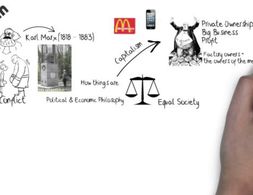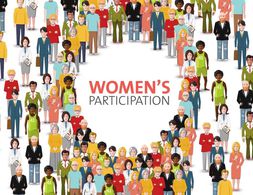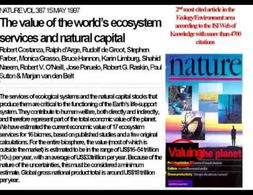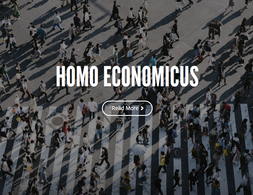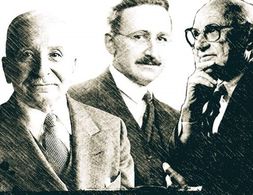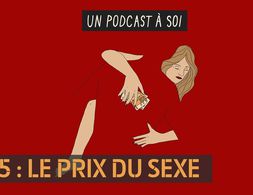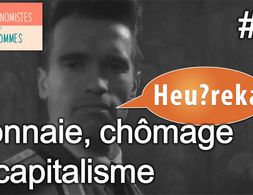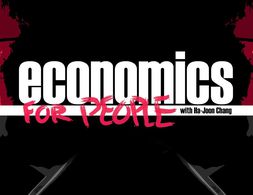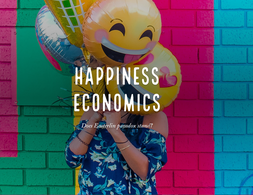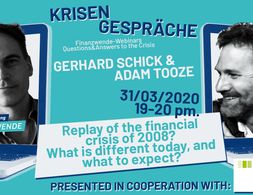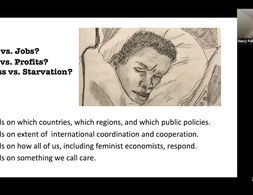674 results
Trickle Down Economics - an old topic, but still present in our lives. The idea consists of deregulation of the economy and of lower tax for the top in order to increase the "size of the pie" so everybody would have a bigger piece, even with a smaller share.
This presentation looks at the basic idea of Marxism, specifically the conflict between the different classes in society.
This animated video explains gender responsive budgeting and how it is used to mainstream gender in governance planning and budgeting. The video has been pro...
Robert Costanza briefly present various methods of environmental valuation, and talks about the changes in the global value of ecosystem services. He then introduces the major ecosystem services, and how different methods of valuation affect the preferred policies to address environmental issues.
What is game theory? Game theory is a way of thinking about strategic interactions between people, which makes it a crucial component of economics, political science, international relations, psychology and a variety of other disciplines that deal with the complexities of human interaction in decision making.
Have you ever wondered why it is so difficult to follow through on new year’s resolutions, such as to exercise more or to start saving more money towards retirement? The agent that most traditional economic models are based on would not struggle to keep up these resolutions. These agents are referred to as homo economicus.
In this short video behavioural economist, Dan Aerily talks about how our cognitive illusions will trick us into believing something that is otherwise deemed irrational by the homo economicus. It raises and probes into some very interesting questions that defy the neoclassical rational behaviour.
Ce court article reprend les idées directrices de l'introduction à l'économie autrichienne dans une version efficace et condensée, idéal pour ceux qui souhaitent la découvrir.
La prostitution est-elle la pire des violences patriarcales exercée sur le corps des femmes, ou un travail pas pire qu'un autre ? Pour protéger les femmes, faut-il l’abolir ou donner plus de droits à celles qui l'exercent ? Ces deux positions antagonistes divisent profondément le mouvement féministe.
The main goal of this website is to make Economics less confusing. You can explore what the discipline of Economics is and could be. Learn about basic Economic terms and jargon.
Dans cet épisode, nous nous posons la question du rôle de la monnaie dans une économie capitaliste. Pour cela, nous comparons le fonctionnement de deux économies en apparence identique, à ceci près que la première fonctionne sans monnaie, comme une économie de troc, et la seconde est monétaire. Nous nous apercevons alors que le caractère monétaire ou non d’une économie modifie radicalement ses propriétés. La détermination des profits sera ainsi très différente dans ces deux économies, les relations de causalité entre dépôts et crédits, épargne et investissement s’inversent, une crise de surproduction est possible dans un cas mais pas dans l’autre, et le chômage peut également avoir des origines très différentes, et même opposées, selon que l’on considère une économie monétaire ou non.
Les propriétés de l’économie de troc recouvrent celles de la théorie économique standard (théorie néoclassique) qui s’est historiquement construite sans prendre en considération la monnaie, celle-ci étant considérée comme neutre sur l’économie. Les propriétés de l’économie monétaire rappellent quant à elles celles des modèles postkeynésiens, bien moins connus, et qui trouvent leurs origines dans les travaux et écrits de Keynes, qui affirmait dans son ouvrage le plus célèbre (la théorie générale de l’emploi de l’intérêt et de la monnaie) que « lorsqu’on s’attaque à la recherche des facteurs qui déterminent les volumes globaux de la production et de l’emploi, la Théorie complète d’une Economie Monétaire devient indispensable » (1936, p. 297).
Pour approfondir le fonctionnement d’une économie monétaire, vous pouvez lire le livre de Laurent Cordonnier, maître de conférences à l’Université de Lille, « L’économie des Toambapiks » qui présente à partir d’une « fable » la loi des profits de Kalecki dont nous parlons dans la vidéo. Le livre se lit très facilement.
A rethinking of the way to fight global poverty and winners of the Swedish Bank Prize for Economics.
In this short video Peter Reich illustrates seven aspects of the state of the US economy. He provides suggestions on how to to get started to move towards a more fair distribution of wealth.
Ever wondered how a rap battle between John Maynard Keynes and F.A. Hayek would sound like?
Prof. Robert Guttmann looks at the current transformation of the international world order through the lenses of global money and finance.
Quinn Slobodian a historian of modern Germany and international history analysis of current development in the Mont Pèlerin Society and therefore neo-liberalism. He sees neo-liberalist thinkers less as believers in the self-healing power of markets, but more as ordo-liberal Globalists who wanted to protect the markets from post-war politics and especially mass democracy. Their goal of global capitalism is still strong, however sceptics in the Mont Pèlerin Society are rising, which see international migration as a threat to Globalisation. Therefore, turning neo-liberal policies away from international institutions like the EU back towards the national states as new defenders of the markets as well as international trade and investments.
(A development which can be seen in the Friedrich A. von Hayek-Gesellschaft and especially in the "liberal" wing of the German rightwing populist party AfD)
How does fiscal policy work and which dimensions have to be considered? In this short text, you can learn about the difficulty of juggling different dimensions and which optimal rules exist at the micro and macro level.
Mariana Mazzucato explains how we lost sight of what value means and why we need to rethink our current financial systems so capitalism can be steered toward a bold, innovative and sustainable future that works for all of us.
Economics has long been the domain of the ivory tower, where specialized language and opaque theorems make it inaccessible to most people. That’s a problem.
Planet Money and The Indicator aim to explain current economic events in an easy, fun and accessible manner.
Inequality is an issue we all face every day, from income disparities to gender discrimination. In this first lecture in the Institute for New Economic Think...
Happiness economics is a branch in behavioral economics, where it explores the economics factors and consequences of happy humans. What makes people happier, and what benefits do we get when people are happier? This dossier introduces you to the field of happiness economics, from a review of economic factors proposed to influence people’s happiness, to a discussion of the economic consequences of happiness, and concludes with economic policy implications of happiness economics.
Cet article rassemble les principaux résultats des études de genre en finance. À partir d’une présentation des résultats inédits d’une enquête sur les ménages français (enquête Pater), nous examinons d’abord les différences de préférences et de comportements entre hommes et femmes en matière financière, puis leurs incidences à plusieurs niveaux.
A stock-flow-fund ecological macroeconomic model
Exploring Economics Dossier on the economic fallout of the COVID-19 pandemic and the structural crisis of globalization. COVID-19 encounters a structural crisis of globalization and the economic system that drives it, with an uncertain outcome. We asked economists worldwide to share with us their analysis of current events, long-term perspectives and political responses. The dossier will be continuously expanded.
Currency hierarchy and policy space: A research agenda for development economics Barbara Fritz
For some days, global financial markets are in turmoil. Central banks and governments are dealing with the unfolding crisis on a daily basis with seemingly u...
This is an online panel and discussion on the ongoing and potential gendered impacts of COVID-19 organized by the International Association of Feminist Economics (IAFFE).
This Forum in the Boston Review deals with the role of economics in modern policymaking and presents a wide set of perspectives on the topic. The opening text by Suresh Naidu, Dani Rodrik and Gabriel Zucman aims to answer a range of common criticisms against the modern, neoclassical science of economics and its influence on public discussions.
Jens Beckert and Richard Bronk, authors of "Uncertain Times", explore the extent to which flaws, blind spots and more importantly bias created by macroeconomics models, based on forecasts and statistical devices, shape crisis and the market economy in which we live.
The effects of the 2020 pandemic on the Latin-American region: a thorough before-after analysis.
An analysis of the modern neoliberal world, its characteristics, flaws and planetary boundaries aiming to end new economic politics and support a global redistribution of power, wealth and roles.
In this online lecture, economist and Professor at the School of Oriental and African Studies (SOAS), London, UK. Costas Lapavitsas, explains the limitations of the neoliberal market in creating financial stability and growth in both, developing and developed countries.
Nous utilisons des cookies sur notre site Web. Cliquez sur Accepter pour nous aider à améliorer constamment Exploring Economics !


